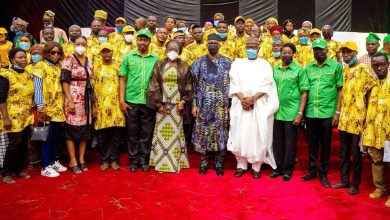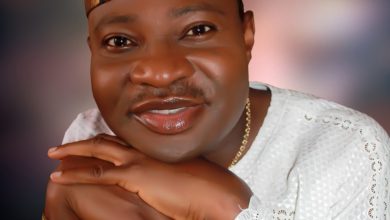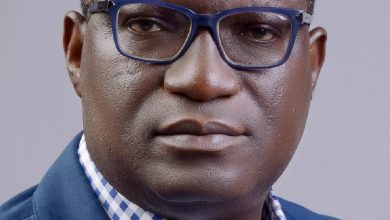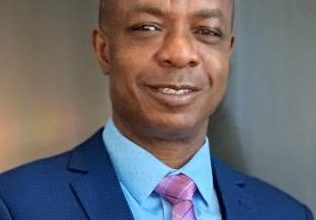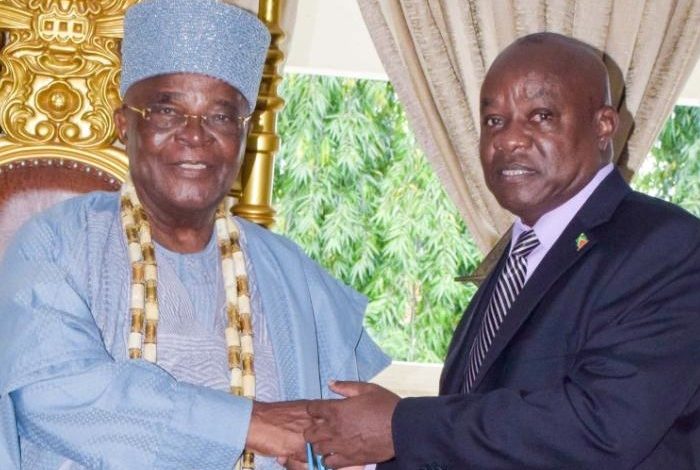
As Guyanese Opposition Leader, Norton, Visits Nigeria
By Kunle Somorin
As Aubrey Norton, the esteemed leader of Guyana’s opposition, arrives in Lagos, Nigeria, a profound opportunity for cross-cultural exchange and political enrichment presents itself. Under the auspices of the Olusegun Obasanjo Presidential Library Foundation, Norton’s visit facilitates a confluence of ideas with Nigeria’s luminaries in governance, commerce, and civil society. Notably, he has been in politics from the age of 15. He is now 67. His ascension to leadership contrasts with the prevailing gerontocratic landscape in Nigeria.
Norton’s distinguished background as a political scientist and international relations scholar, and champion of social justice renders his perspective uniquely valuable. His emotional affinity for Africa, particularly Nigeria, underscores the complex intersections between the Caribbean and African diasporic experiences.
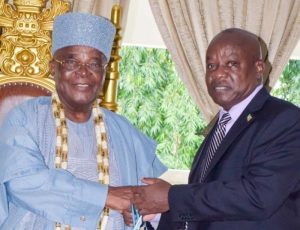
While acknowledging the historical and cultural nuances that distinguish the two regions, Norton’s visit offers a chance for Nigerian politicians, business leaders, and academics to engage in a rich exchange of ideas. By embracing the complexities of their shared heritage, they may foster a deeper understanding of their place within the global African diaspora.
The visit also presents an opportunity for comparative analysis of opposition politics in Nigeria and Guyana, revealing intriguing parallels and divergences shaped by distinct historical, cultural, and political contexts. Both nations grapple with challenges in holding power, electoral irregularities, and polarization along ethnic or regional lines.
Norton’s leadership style, commitment to social justice, and coalition-building acumen offer valuable lessons for opposition elements in Nigeria, including Peter Obi, Atiku Abubakar, and Rabiu Musa Kwankwaso. It also serves as a lesson for those in power since the ruling People’s Progressive Party (PPP) in Guyana was also in opposition between 2015 and 2020, like Nigeria’s Peoples Democratic Party (PDP) that also lost power to the present ruling All Progressives Congress (APC) in Nigeria also in 2015.

As Nigeria leaders navigate their democratic odyssey, they may draw inspiration from Norton’s experiences and the insights gleaned from this visit. It is instructive that Obasanjo played the role expected of a statesman, choosing leaders to meet across party lines, the business community and the academia. They include, Vice President Kashim Shettima, Senate President Godswill Akpabio, Labour Party’s Peter Obi and PDP governors Seyi Makinde (Oyo) and Peter Mbah, as well as APC’s Dapo Abiodun (Ogun) and Babajide Sanwo-Olu (Lagos); Africa’s richest man Aliko Dangote and Nuhu Yakubu, other statesmen like Emeka Anyaoku and some select traditional rulers.
Norton, a powerful voice in Guyanese politics, galvanizing movements to combat social and economic injustices faced by Afro-Guyanese and marginalized groups. His unwavering commitment to equality, human rights, and the rule of law offers a paradigm worthy of emulation by Nigerian leaders, both within and outside the government.

As a politician, Norton has witnessed firsthand the systemic inequalities that perpetuate poverty, inequality, and social exclusion, shaping his political ideology to emphasize empowerment, inclusivity, and social justice. His vocal criticism of the ruling PPP government has held them accountable for their actions, advocating for transparency and accountability. Norton has championed constitutional reform, electoral reform, and social justice, recognizing these as essential for building a more equitable and just society.
Nigerian leaders would benefit from inquiring about Norton’s navigation of complex political landscapes, his ability to connect with diverse groups, and his coalition-building with other political parties, civil society organizations, and trade unions. His charisma and conviction have inspired a new generation of Guyanese to become involved in politics and demand change, offering a valuable lesson for Nigerian opposition elements.
While contexts may differ, opposition leaders can draw inspiration from Norton’s background and leadership style to enhance their own political journeys and address Nigeria’s challenges in opposition politics. Prioritizing engagement with constituents, listening to their concerns, and advocating for their welfare can help build trust and loyalty.

Norton’s leadership style, characterized by conviction, courage, and resilience, offers a valuable model for Nigerian opposition politicians. His commitment to social justice, demonstrated through advocacy for marginalized communities and policies promoting equality and fairness, is particularly noteworthy. Additionally, his ability to build coalitions and collaborate with stakeholders is a valuable asset, demonstrating the importance of unity and cooperation in achieving common objectives.
However, Norton’s journey has not been without challenges. His meteoric rise might have been hindered by various forces, especially those in power. The travails of Dr. Aubrey Norton under the ruling People’s Progressive Party (PPP) offer a poignant paradigm for Nigerian leaders to ponder. Norton’s significant contributions have been his unrelenting critique of government policies, ensuring accountability and fostering a culture of debate and discussion.
A steadfast advocate for constitutional reforms, championing changes to address issues like electoral deadlocks and ensure a seamless transfer of power, Norton has significantly strengthened Guyana’s democratic institutions, promoting a more inclusive and representative political system. Furthermore, Norton has been a vocal proponent of transparency and accountability in government, exposing corruption and mismanagement, and ensuring that those in power are held accountable for their actions. This has fostered trust in government and promoted a culture of good governance. If Nigeria must move forward this should be the bedrock of opposition politics in the any democracy.

Norton’s pivotal role in fostering national unity, bridging ethnic and regional divides, and promoting reconciliation and inclusivity, should guide our leaders to build a more cohesive and harmonious society. However, his impact has not been without challenges. He has faced backlash from the government, including attempts to silence him and limit his ability to operate effectively.
The specter of political harassment, intimidation, arrest, and detention has been a significant hurdle for Norton, highlighting the imperative for Nigerian leaders to uphold the sacrosanct nature of dissenting voices in a democratic polity. The stifling of oppositional voices can only lead to a stifling of innovation, creativity, and progress.
Moreover, the ruling party’s penchant for disseminating disinformation and propaganda through state-controlled media outlets has served to obfuscate the truth and malign Norton’s character. This egregious abuse of state resources for partisan gain is a stark warning to Nigerian leaders of the dangers of exploiting state machinery for political expediency. In addition, Norton is leading the fight for a clear voters’ list and biometrics. In this quest, he is surrounded by young, upcoming politicians that he is engaging, mentoring and training as he prepares his political party, the PNCR for the future
The electoral landscape in Guyana has been marred by allegations of manipulation and chicanery, serving as a cautionary tale for Nigerian leaders to ensure the integrity of their own electoral processes. The marginalization of opposition parties has also highlighted the importance of treating all political parties with equanimity and providing equal access to resources.

And, the polarized and divisive nature of Guyanese politics serves as a stark reminder to Nigerian leaders of the imperative to promote national unity and inclusive governance. By embracing a more conciliatory approach, Nigerian leaders can foster a more harmonious and cohesive polity. These challenges faced by the ‘youngish’ Norton in Guyana offer a salutary lesson for Nigerian leaders. By heeding these cautionary tales, Nigerian leaders can strengthen their country’s democratic foundations, promote political tolerance, and ensure a more inclusive and equitable governance structure for all citizens.
Somorin contributes this piece from Abeokuta
FOOTNOTE: You want to share story with us? You want to advertise with us? You need publicity for product, or service, or event? Contact us on WhatsApp +2348073463653 or email penpushing@yahoo.com



